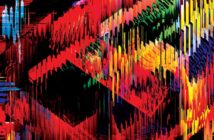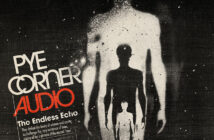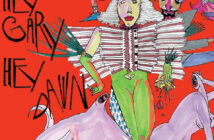
Tunis involves a great gambit laid down by the festival FEST in Carthage and Tunis that part of sound material used in the performance must be captured live during the festival period. The limitations, so to speak, open up a live performance where aspects of the city are drawn into and shape part of the performance. So the field recordings particularly focus on the call to prayer of the mosque, folk vocals intonations, various bird and wildlife sounds, streetscapes, close recordings of objects and incidental sounds. These are presented processed and raw, the results being organic drones that encompass living aspects of the city, the rhythm of life amongst sculptural electronic sound art. It is quite alive with microtonal aspects, concentrated focus on the artistry of field recording, aspects of tribal percussion and religious vocal work. It both encompasses aspects of classical construction, music concrete, electro-acoustic in a free flowing improvisation and experimentation.
Consider that John Burton, aka Leafcutter John, is also an accomplished Luthier who wields his lute in sophisticated software spaces including the Forester software he developed as well as Max/Msp. He also invents electronic DIY technology in the audio sphere, some as strange as they are wonderful. So if you combine these elements of endeavour you have a fairly advanced electronic landscape, applied to the base of an acoustic instrument that extends back to at least the 6th century. The artwork for the album is inspired by art from the Acropolium of Carthage which contains art from the 18th and 19th century in Tunisia in turn inspired by 14th Century Central European art. It is this complex cultural interweaving between time, place and spatial and technological forms that makes the album fascinating. It is as if he has drawn in the culture of Tunisia and retransmitted it through the device of contemporary musical technology creating an exploded fusion of sound that is both radical in form and holding what can be considered as an authentic living culture.
Tunis contains seven tracks and it is by far the most alive concert recording from the electronic field that I have heard. Its ability to reach beyond the miniature of the field out into a wider culture through time as well as respecting and reflecting the art and culture of the place in which it sets its performance makes it an artistic achievement that is rare, beautiful and profound.
innerversitysound



